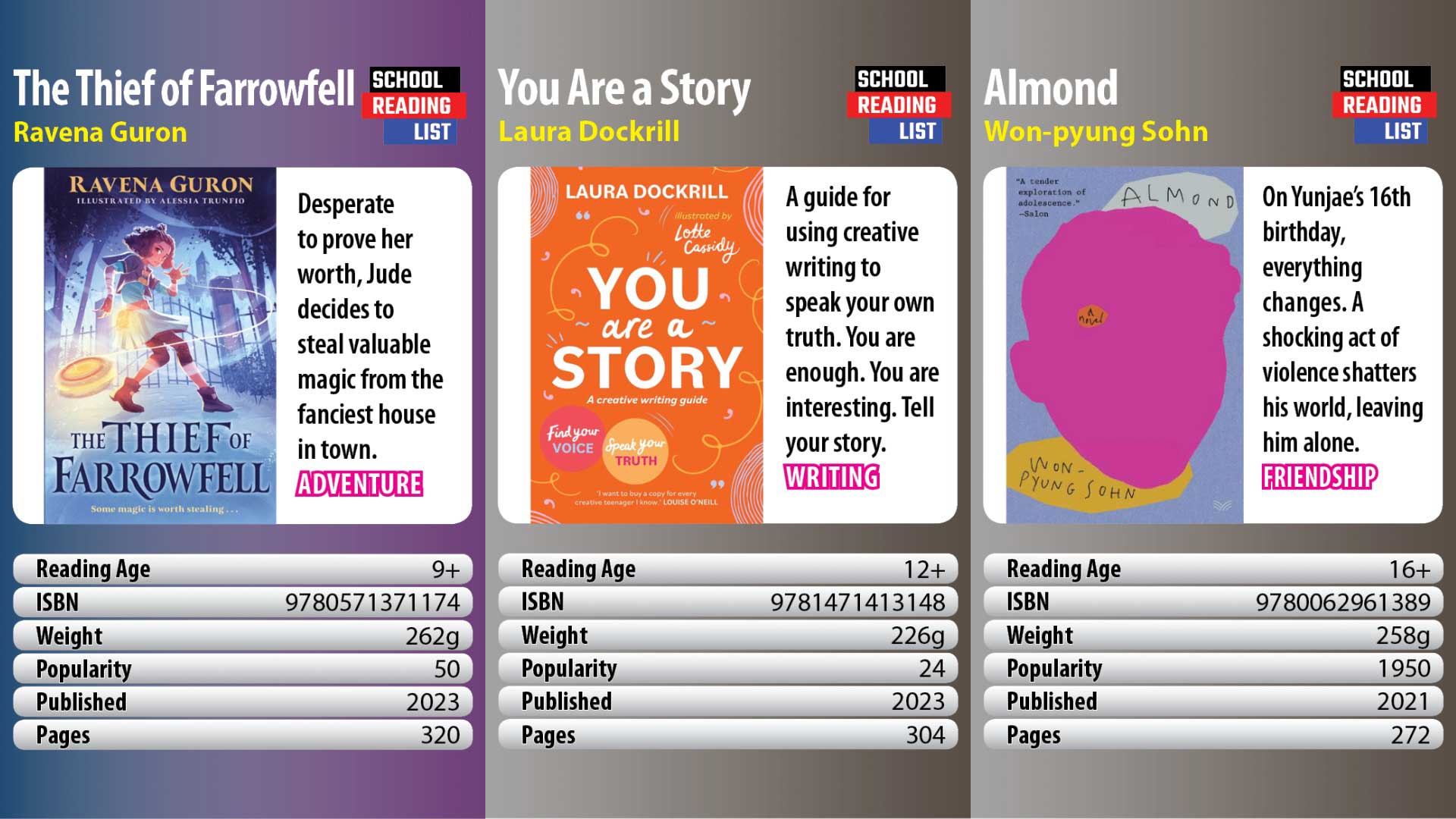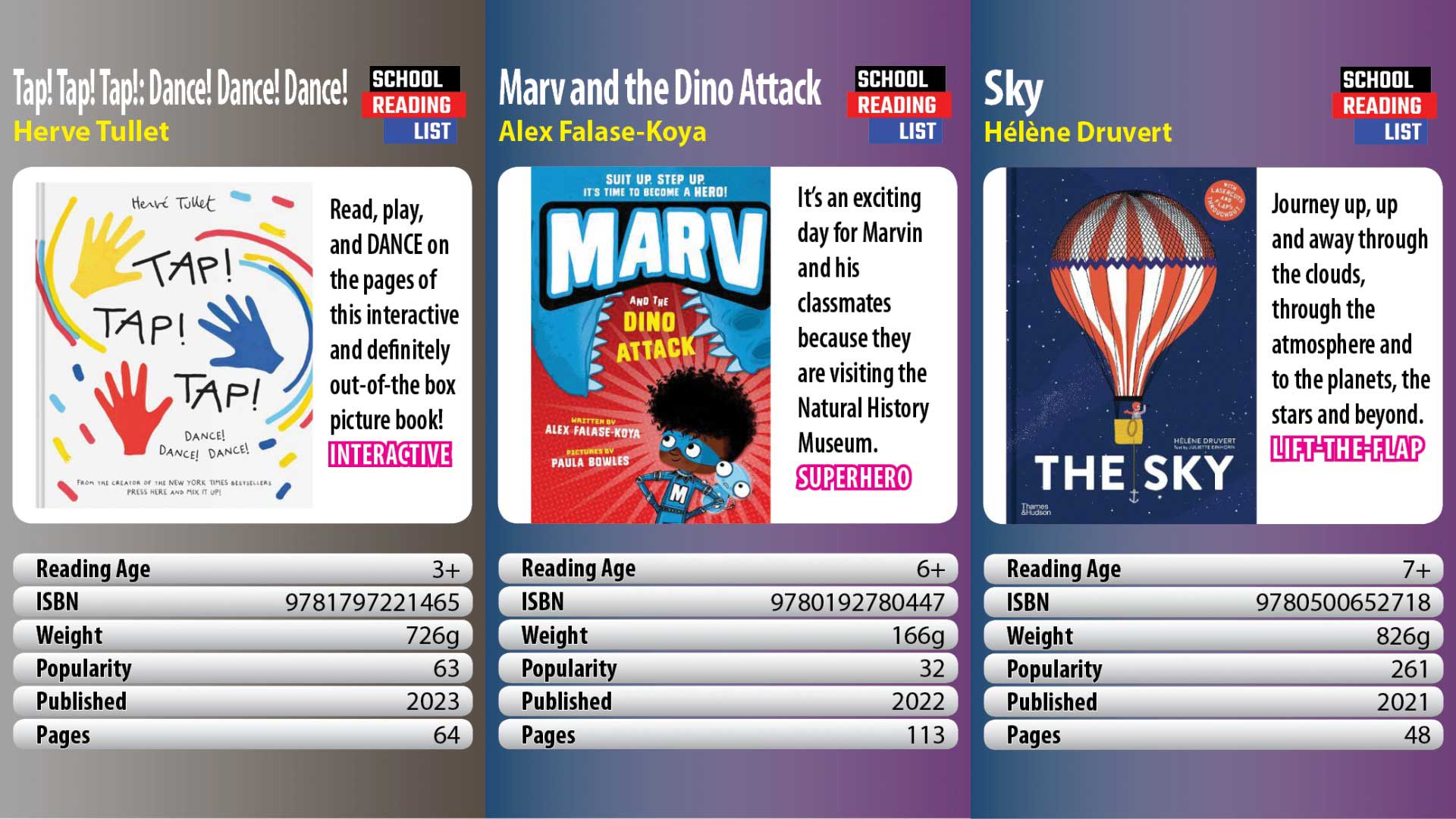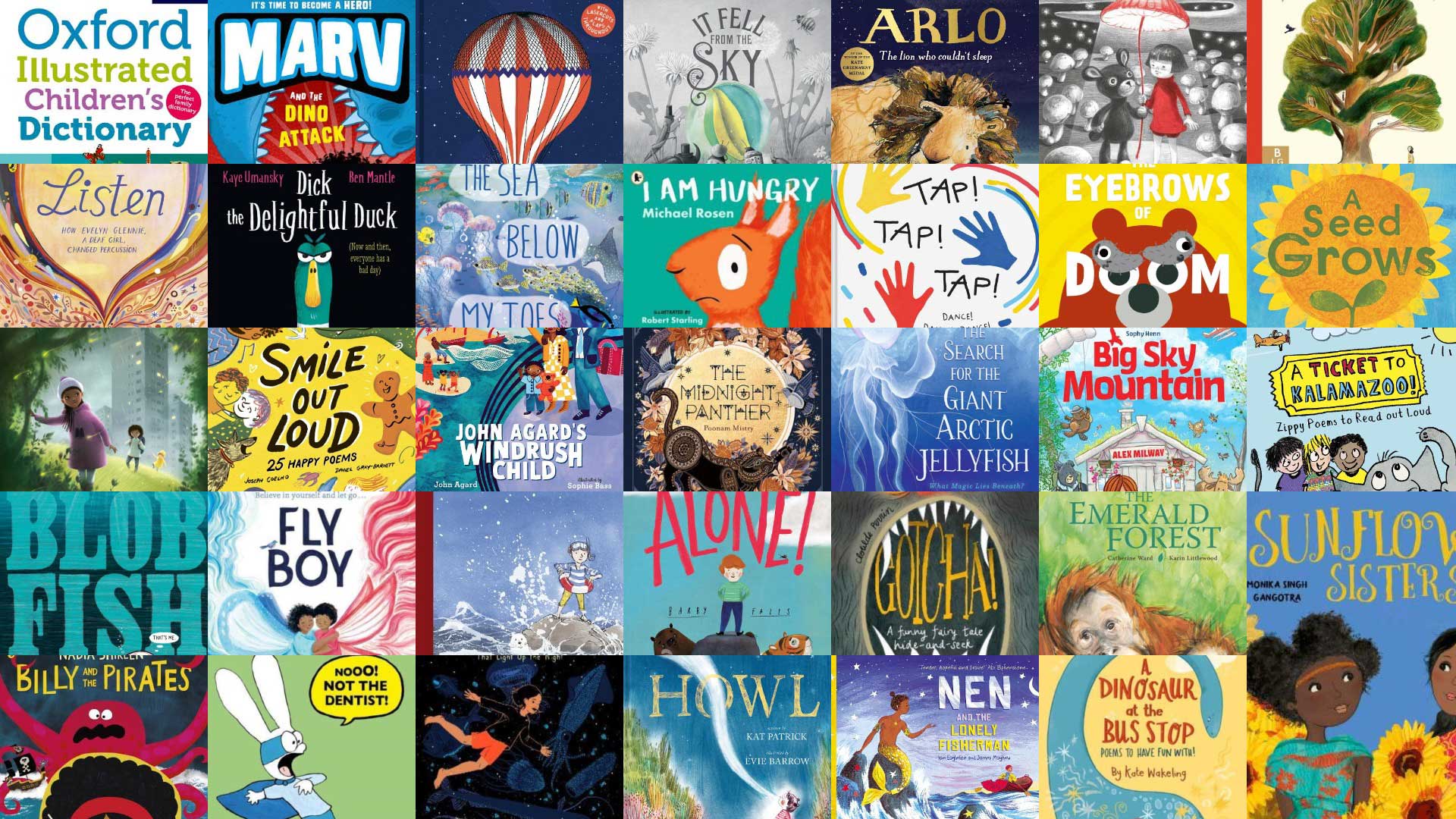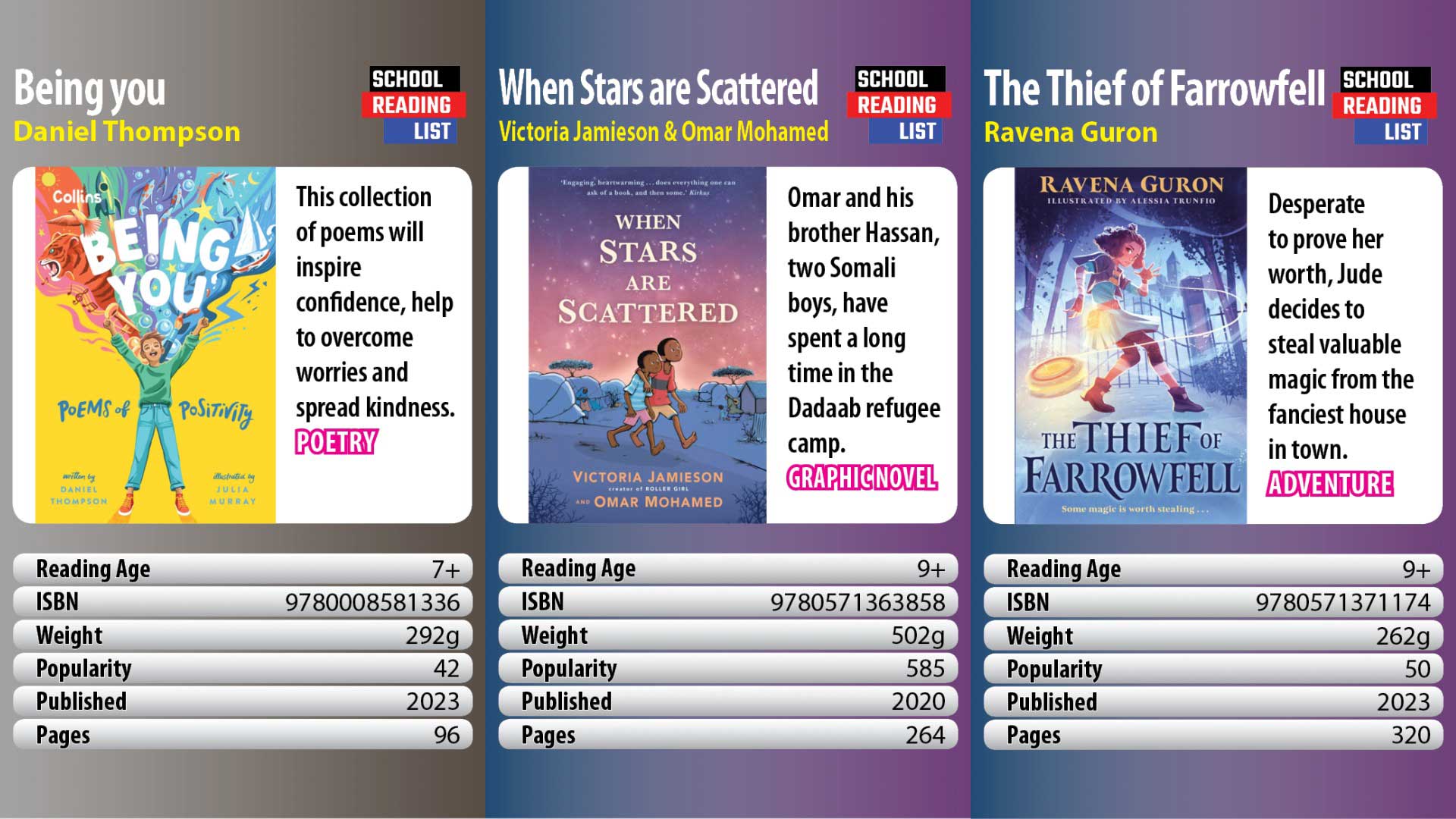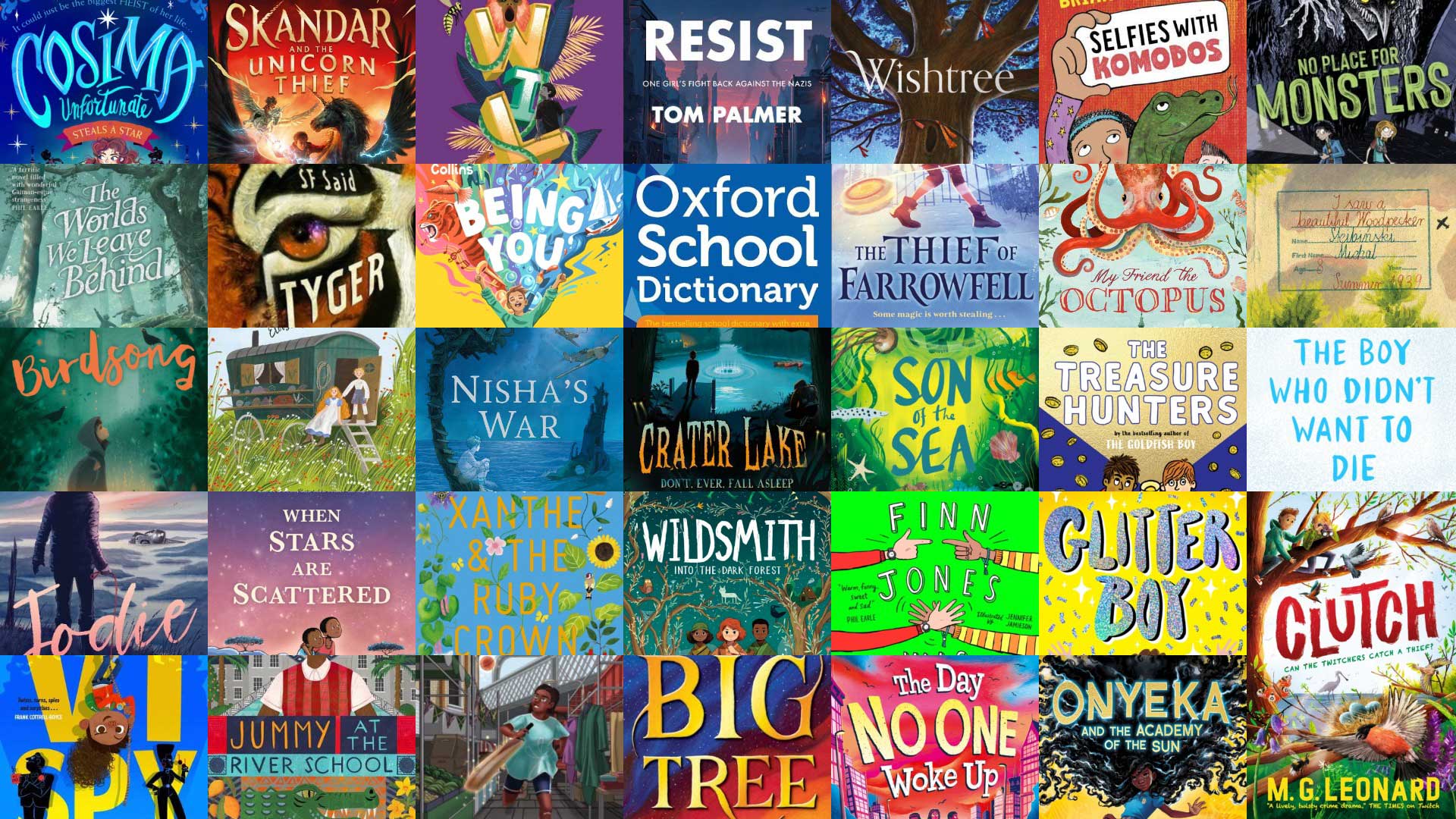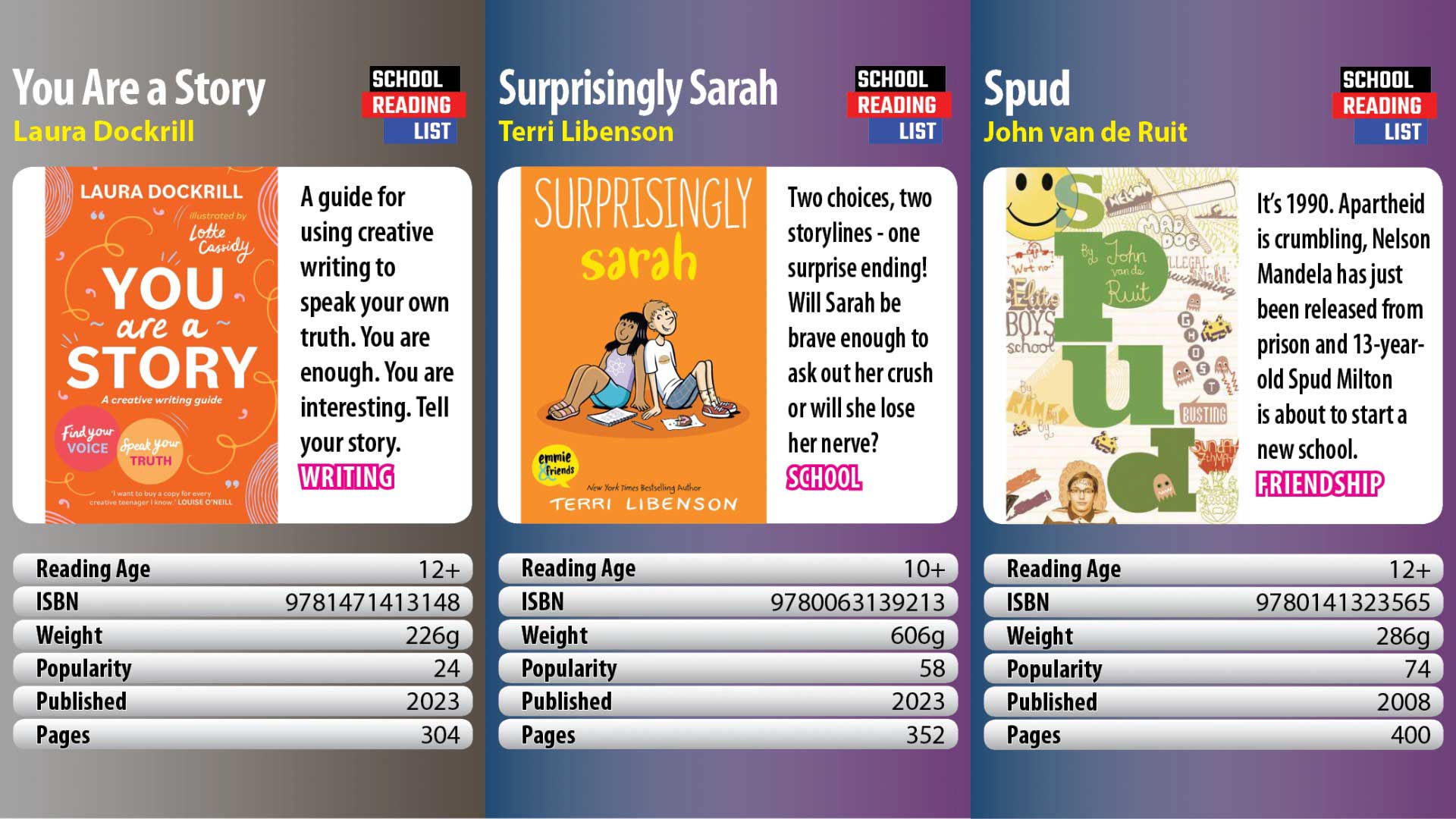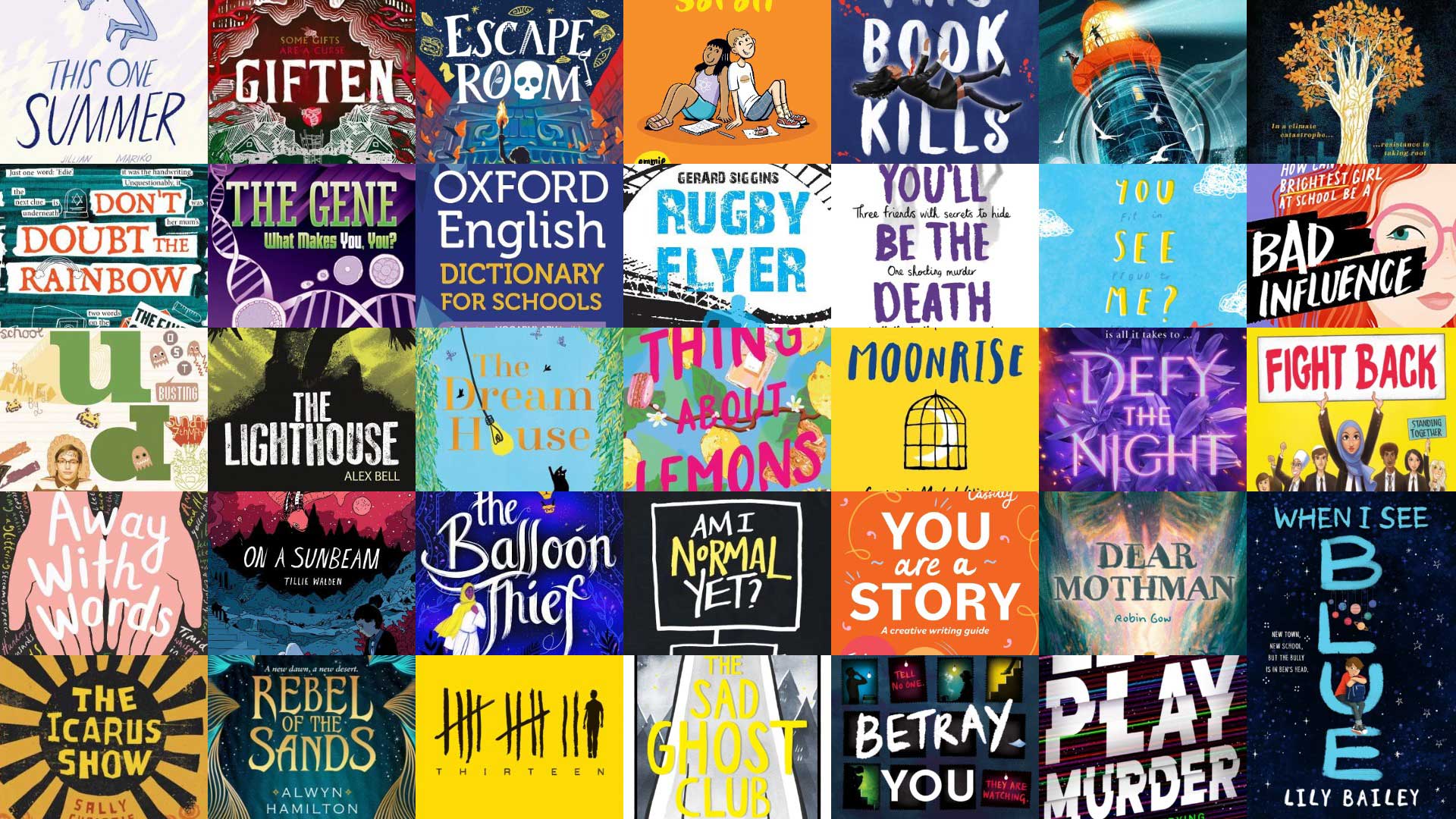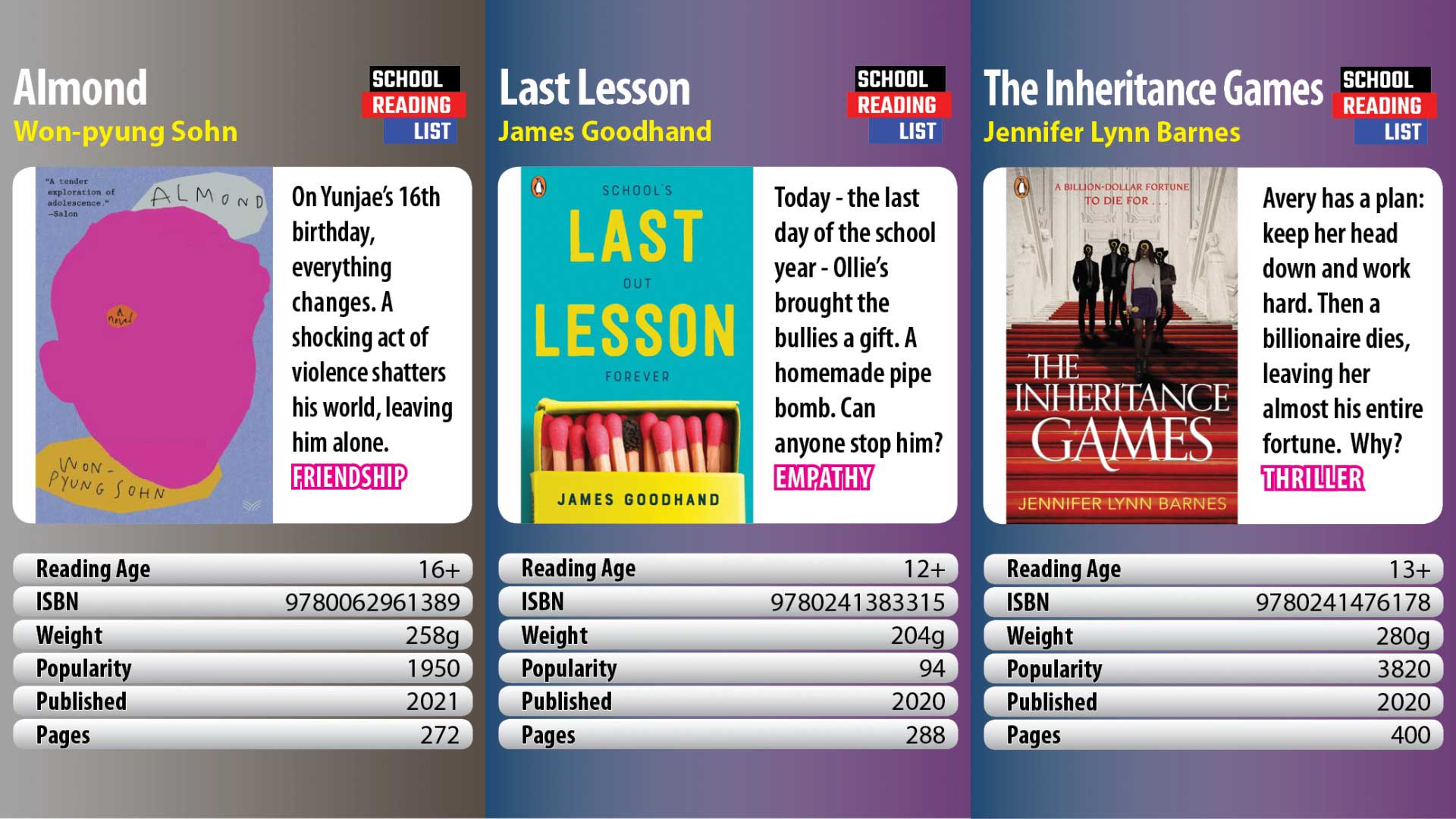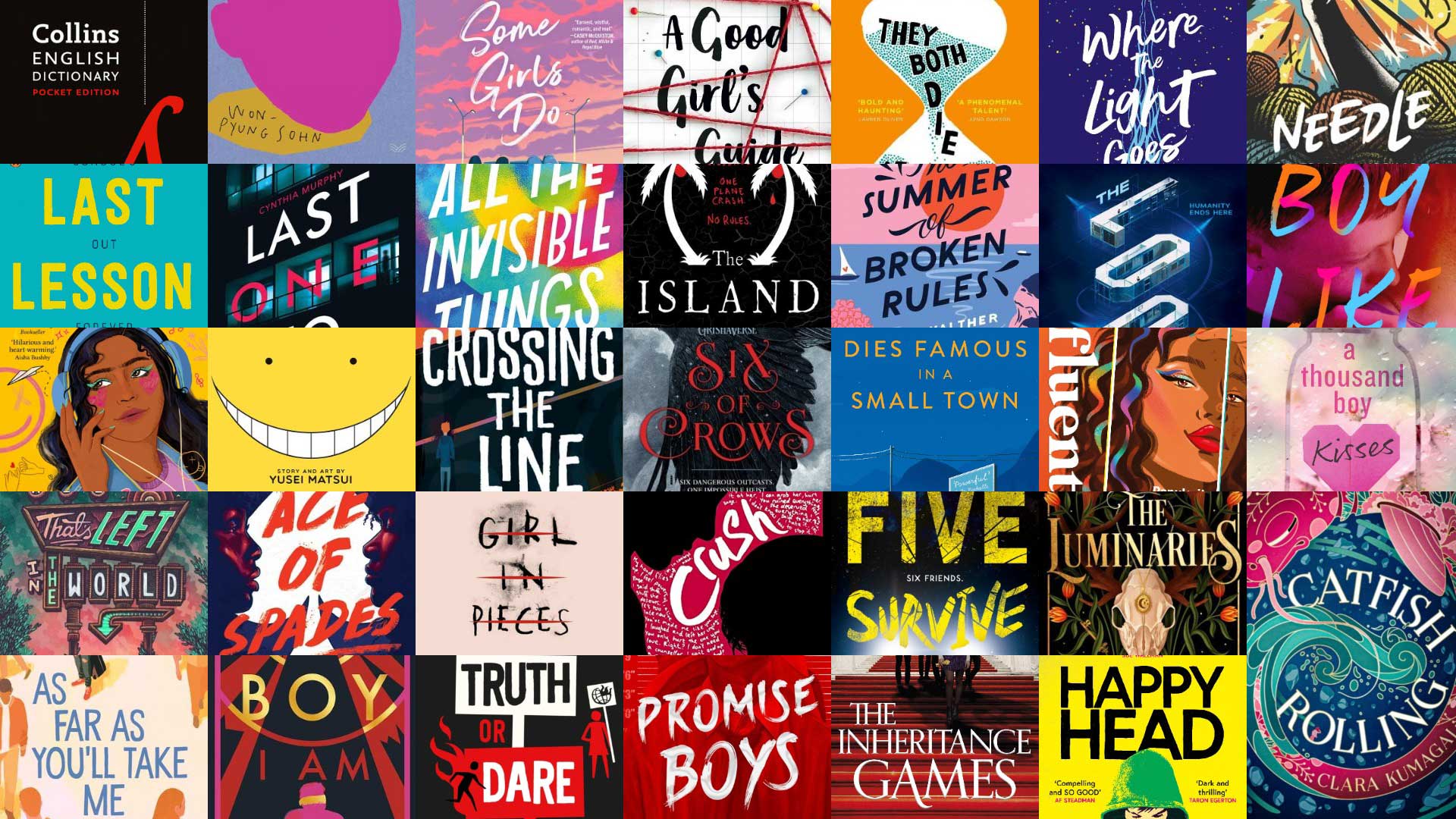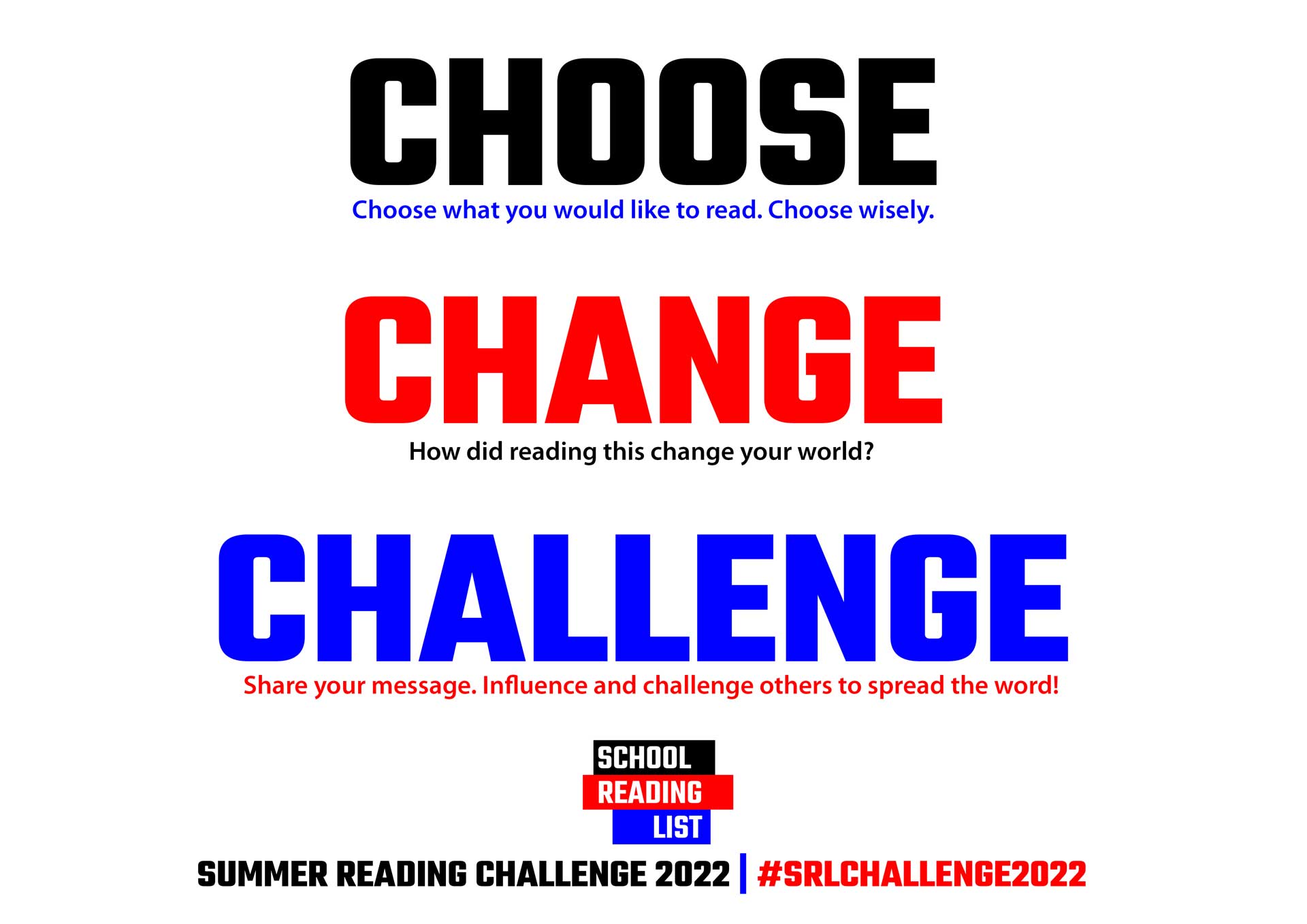Summer Reading Challenge
Summer Reading Challenges: Here’s our page full of summer reading challenges to use in school, with book clubs, and at home. Use our free ideas and advice on how to develop an effective challenge that results in positive and long-term improvement in attitudes towards reading amongst your student body. Use these challenges throughout the summer holiday months to maintain your students’ reading age and progress, or use these ideas at any point in the year to reinvigorate whole school reading or inspire reading for pleasure at home. Click the links below to go straight to our free and downloadable reading challenges for children and teens.
2024 & 2025 “Two Reads and a Dream” Summer Reading Challenge2023 “Booktious” Summer Reading Challenge2022 “Choose, Change, Challenge” Summer Reading ChallengeReading challenges: resources and ideas
School Reading List Summer Reading Challenge: Two Reads and a Dream
Many schools, teachers, families and children don’t have money to spend on new books. So we’ve created a challenge that harnesses the book we already have, the stories we already know and the infectious enthusiasm for books we all have inside of us. This challenge doesn’t cost anything, and we’ve designed it to try and avoid, as far as possible, downloads, printing, paper and pens. We hope that focusing on talking to each other, communicating and using word of mouth to spread a love for books costs little, is more friendly to the environment and builds coherent links within your school community.
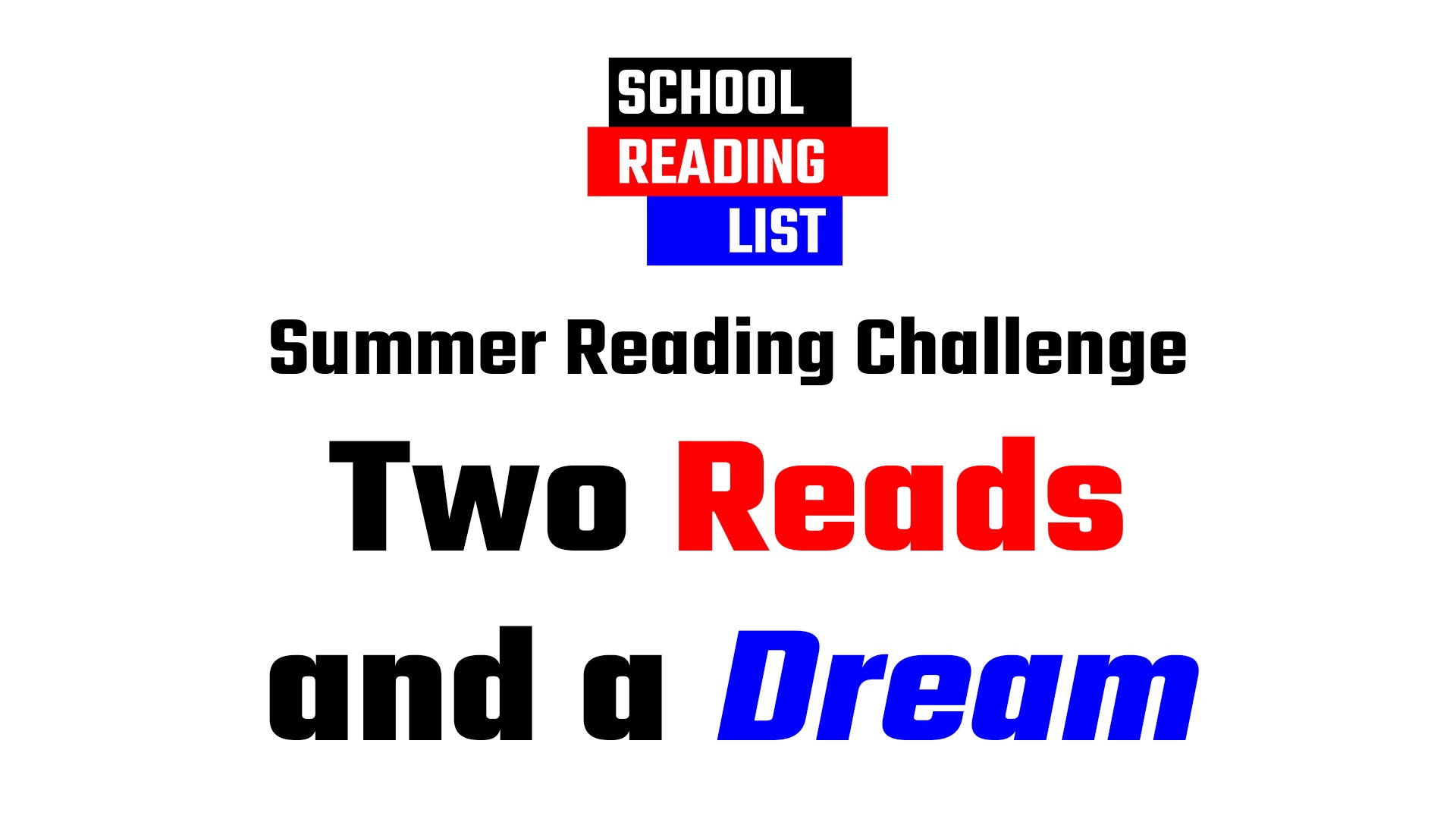
Two Reads and a Dream
- Pick two reads – books you love and which mean something to you. Challenge a friend, parent, teacher, or adult to read them.
- Tell them about a dream book that you’ve never found. This might be a fantasy about trains, a story about a childhood with no exams, a fairy tale about a world with no weapons, a diary from the future, or a nonfiction book that explains something you are dying to know more about. Your dream book can be anything you’d love to read but have not yet seen or found.
- Can they recommend a book that matches your dream and challenge you to read it? Maybe they can. Maybe they can’t. Maybe they can recommend something else, or something close, or something even better?
Share your Two Reads and a Dream
- Share widely in real life and, for adults, using the power of social media.
- Teachers/parents/librarians/other adults can share all these recommendations and dreams on social media! Use the #srlreadingchallenge hashtag and/or tag @schoolreading on X.com.
- Let your favourite authors know! Tag your favourite book publishers and authors. Let them know about your dream book. Maybe one of them has already written your dream book. Maybe one of them will decide to write your dream book!
- We’ll try to like and share as many of your ideas and books as we can find! (As long as they’re not inappropriate etc…)
Discuss your Two Reads and a Dream
- Be eco-friendly. Try to talk about Two Reads and a Dream without using a pen or paper.
- Talk or chat, or message! Communicate with people you know about books!
- Spread your infectious enthusiasm for reading!
Mighty oaks from little acorns grow
Strategies for teachers and librarians
- Avoid printables because we all care about the planet.
- Ask teachers, librarians, teaching assistants and other school staff to present or talk about two books that really speak to them.
- Ask teachers to describe a book they would love to see and read.
- Ask them to explain why, revealing their passion for books.
- Encourage a wide range of genres and cross-curricular books and favourite niches.
- Each student could submit two books that reflect their realities, interests and what they think is important.
- Librarians could categorise these choices into genres and subject areas. This data could inform reading choices and cohort/class/tutor group / Key Stage interests.
- Teachers, teaching assistants and librarians could use this information to present highly targeted book tasters and assemblies, or create incredible children’s and teen reading lists for your school that reflect your realities.
A journey of a thousand books begins with a single word
Practical ideas to use at school, at home or in your community
- Children, parents, grandparents, and relatives book swap picnic
Organise a community picnic where everyone brings a book they’ve read and loved. At the picnic, attendees can swap books and discuss why they recommend them. This encourages sharing personal stories and recommendations in a relaxed, social setting. - Whispering Words Book Club
Start a travelling book club where members read a book and then pass it on to the next person with a handwritten note or handmade bookmark inside, sharing their thoughts and favourite parts. Each member adds their own note before passing it along, creating a chain of recommendations and personal insights. - School library scavenger book hunt
Create a scavenger hunt. Participants leave a book they love in each one and take a new one to read. They can also leave notes recommending the books they’ve deposited. - Team reading relay
Form teams where each member reads a different book. After finishing, they write a brief review and hand the book (and review) to the next team member, who then reads and adds their own review. This relay continues throughout the summer, creating a collection of peer reviews that can be shared at the end of the challenge. - Use the power of social media
Encourage participants to post about their current reads on social media, tagging friends they think would enjoy the book. Use a unique hashtag for your challenge to track recommendations and discussions. - Little Acorns and a Mighty Oak
Set up a book recommendation tree in your library where people can write book recommendations on paper leaves and add them to the tree. Visitors can pick a recommendation and leave their own. - Use Two Reads and a Dream with your Reading Buddies Program
Pair participants with reading buddies. Each pair selects books for each other to read over the summer, based on what they think their buddy would enjoy. They discuss their choices and the books once they’ve read them. - Mystery Book Jar Challenge
Create a book jar filled with slips of paper containing book titles or genres recommended by the participants. Each week, draw a title from the jar, and everyone tries to read it. Participants can meet weekly or bi-weekly to discuss their thoughts and experiences with the book.
2023 School Reading List Summer Reading Challenge: Booktious!
Booktious! Here’s our free-to-download printable card game for summer reading challenges! ‘Booktious‘ introduces youngsters to new books and shines a light on high-quality and recently published novels for children and young adults. Booktious is infectious and uses a compelling, engaging, and addictive format with simple-to-follow gameplay to spread the reading bug. Readers will find diverse, inclusive, and lesser-known works, as well as learn interesting facts about the world of literature. It’s ideal for your summer reading challenge, whether at home, school, in libraries, or as part of a book group.
If you can’t find a local summer reading challenge, the Booktious card game is great fun to try at home. Keep a checklist of all the new books your child has read and challenge family members to read new and fascinating stories! The Booktious card game also includes many ideas for teachers, librarians, and parents to help expose children and teens to wonderful new novels all year round!
All of the books can be purchased as individual titles, class sets, or book packs using the links in the article below.
KS1 GameKS2 GameKS3 GameKS4 Game
KS1 Booktious card game
The KS1 edition includes a range of inspiring and exciting picture books and short chapter books by Herve Tullet, Alex Falase-Koya, Hélène Druvert, Charlotte Guillain, Ian Eagleton, Michael Rosen, Joseph Coelho & Richard Johnson, Poonam Mistry, Nadia Shireen, Kate Wakeling, Olaf Falafel, Eric Fan & Terry Fan, Julia Kuo, Stephanie Blake, Yoko Mori, Kat Patrick, Shannon Stocker, Chloe Savage, John Agard, Catherine Rayner, Sam Usher, Emma Carlisle, Alex Milway, Monika Singh Gangotra, JJ Bola & Clara Anganuzzi, Kaye Umansky, Steve Smallman, James Carter, Joseph Coelho, Antoinette Portis, Catherine Ward & Karin Littlewood, Barry Falls and Clotilde Perrin.
Download from OneDriveDownload from DropboxDownload from Google Drive
Buy the books featured in the KS1 Booktious card game
How to buy the books featured in the Booktious card game KS1 edition. Use these links to buy individual titles, class sets of books or complete packs of all of the 34 books featured.
Buy from UK.Bookshop.OrgBuy 34 book pack from Amazon
KS2 Booktious card game
The KS2 edition includes a diverse range of empowering and thought-provoking reads by Daniel Thompson, Victoria Jamieson & Omar Mohamed, Ravena Guron, Lisa Thompson, Simon James Green, Ian Eagleton, Peter Lantos, Brian Selznick, A.F. Steadman, Tola Okogwu, Polly Ho-Yen, A.F. Harrold, M. G. Leonard, Ele Fountain, SF Said, Katya Balen, Tom Palmer, Eloise Williams, Hilary McKay, Dan Smith, Maz Evans, Jennifer Killick, Jasbinder Bilan, Sabine Adeyinka, Kory Merritt, Richard Pickard, Cheryl Diane Parkinson, Michal Skibinski, Liz Flanagan, Lindsay Galvin, Brian Moses, Katherine Applegate and Laura Noakes.
Download from OneDriveDownload from DropboxDownload from Google Drive
Buy the books featured in the KS2 Booktious card game
How to buy the books featured in the Booktious card game KS2 edition. Use these links to buy individual titles, class sets of books or complete packs of all of the 34 books featured.
Buy from UK.Bookshop.OrgBuy 34 book pack from Amazon
KS3 Booktious card game
The KS3 edition includes a range of gripping, prescient and resonating reads by Laura Dockrill, Terri Libenson, John van de Ruit, Karen M. McManus, Alwyn Hamilton, Lauren James, Libby Scott & Rebecca Westcott, Sarah Crossan, Holly Bourne, Robin Gow, Lize Meddings, Ruta Sepetys, Tom Hoyle, Tamsin Winter, Lily Bailey, Brigid Kemmerer, Kesia Lupo, Mariko Tamaki & Jillian Tamaki, Leyla Suzan, Anthony Kessel, Christopher Edge, Ben Martynoga, Alex Bell, Sophie Cameron, Ravena Guron, Gerard Siggins, Laura Dockrill, Sally Christie, Tillie Walden, Kenneth Oppel, Aneesa Marufu, Tasha Harrison and A. M. Dassu.
Download from OneDriveDownload from DropboxDownload from Google Drive
Buy the books featured in the KS3 Booktious card game
How to buy the books featured in the Booktious card game KS3 edition. Use these links to buy individual titles, class sets of books or complete packs of all of the 34 books featured.
Buy from UK.Bookshop.OrgBuy 34 book pack from Amazon
KS4 Booktious card game
The KS4 edition includes a range of topical, powerful and rollicking good reads by Won-pyung Sohn, James Goodhand, Jennifer Lynn Barnes, Bonnie-Sue Hitchcock, Christine Pillainayagam, Amara Sage, Jennifer Dugan, Cynthia Murphy, Simon James Green, Holly Jackson, Josh Silver, Nick Brooks, Holly Jackson, Tillie Cole, Eve Ainsworth, Orlagh Collins, Yusei Matsui, Erik J. Brown, Adam Silvera, Sophie McKenzie, M. A. Bennett, Tia Fisher, Faridah Abike-Iyimide, Phil Stamper, Sara Barnard, K. L. Walther, Leigh Bardugo, Kathleen Glasgow, K. L. Kettle, Patrice Lawrence, Clara Kumagai, Susan Dennard and Ben Oliver.
Download from OneDriveDownload from DropboxDownload from Google Drive
Buy the books featured in the KS4 Booktious card game
How to buy the books featured in the Booktious card game KS4 edition. Use these links to buy individual titles, class sets of books or complete packs of all of the 34 books featured.
Buy from UK.Bookshop.OrgBuy 34 book pack from Amazon
2023 Downloadable resources
Downloadable our 2023 Summer Reading Challenge posters for primary and secondary schools that can be enlarged up to A3 size, printed and used on school websites, social media, intranets, featured in newsletters and utilised in many other situations. Click below to view and download the posters.
- Download poster for primary schools (KS1 and KS2) | Download poster for secondary schools (KS3 and KS4).
2022 School Reading List Summer Reading Challenge
Here’s our 2022 summer reading challenge. This challenge is designed to be simple and accessible, yet powerful. It invites students to make positive reading choices and share how the written word can change how they think about their lives and the world. It also invites pupils to challenge others – friends, classmates, family members, teachers and the wider community – to want to read it for themselves.
Choose: Children and young adults should be encouraged to choose what they want to read. It might be a book, a magazine, a letter, or an article online. It could be anything with words.
Change: Tell the world how reading it moved you, how it changed the way you think, how it helped you as a person or how it encouraged you to take action.
Challenge: Spread the word and influence by challenging others to read it too – either face to face, in school, or for older pupils, online.
How much guidance is provided regarding book choices, how to share and how to challenge others is up to you as the teacher.
2022 Downloadable resources
Downloadable our 2022 Summer Reading Challenge posters in portrait and landscape format that can be enlarged up to A3 size, printed and used on school websites, social media, intranets, featured in newsletters and utilised in many other situations with a Creative Commons license. Click below to view and download the posters.
- Download poster in portrait format | Download poster in landscape format
Reading challenges: resources and ideas
Reading challenge ideas for teachers
Choosing books
- Encourage children to make their own reading choices. If support is needed, try book recommendation lists. This site features recommended books for KS1, lists of books for KS2, titles for KS3&4, a sixth-form book list, young adult graphic novels and magazines.
- Library sessions – make use of your school libraries and librarians. They are fabulous resources and a goldmine of information.
- Book tasting and blurb selling pitches. There are lots of ideas in our guide to developing a reading-for-pleasure culture.
- Author visits are an excellent way to inspire pupils to not just read, but develop their writing.
Sharing the reading experience
- Short speeches can be powerful and rewarding and can be integrated into English lessons, library periods or form time.
- Short videos can be produced as homework, as part of ICT or during English curriculum time.
- PowerPoints are ideal for 1st-person presentations, sharing on intranets or converting into animated shorts.
- Library displays, working walls and posters will be seen and experienced by students every day.
- Bookmark reviews – install pupil voice directly inside the book itself.
- The school website – utilise your school’s internet presence to promote reading.
- Social media stories, reels and video clips – share your school’s passion for books with the wider school community.
Challenge others to want to read
- In school assemblies or class assemblies.
- During form time.
- Within library sessions or English lessons.
- Through written or media features on your school website, intranet, VLE, or school newsletter.
- Via school social media accounts.
Video resources for KS2
In this clip, nine-year-old Luke Bakic delivers a TED talk about his passion for reading and why he believes it is so important.
Video resources for KS3
In this short film, a teacher reads from Shelf Life: Stories by the Book by YA writer Gary Paulsen to help explain the power of books.
Video resources for KS4
In this talking head, actress Drew Barrymore, famous for the film ET, explains how reading changed her life at the age of 14.
Video resources for KS5
In this clip, YouTuber, influencer, university undergraduate, and passionate literature lover Jack Edwards outlines the books that changed his life.
- In this article from The Guardian, a diverse panel of writers explored which books changed their lives.
What are your reading challenge goals?
Reading challenges should be accessible and unlimited. If your school already operates a reading challenge, ask the following questions:
- What is the purpose of your reading challenge?
- Will your reading challenge appeal to all your students?
- Is your challenge accessible and realistic?
- What outcomes are you hoping for?
The moment a reading challenge requires students to read more and more, or to read unrealistically beyond their interests, or to read only a particular topic, the challenge becomes less accessible and more limited; and in terms of developing a genuine reading culture for all – less likely to succeed.
Avoid challenges that preach to the converted or lack accessibility for children
Do book bingos, exhaustive tick-lists, 100+ book challenges, read-until-you-drop marathons or never-ending book journeys have a lasting effect once they have been completed? Do children even remember them after a term? Will they change a school’s culture?
For any challenge you consider introducing to your school, bear in mind that not every child wants to read a considerable number of books (yet) and not every child has access to lots of books at home.
Picture the start of the autumn term. During the first assembly, a group of children receive recognition for the sheer number of books they’ve read over the summer. It’s impressive, and it’s encouraging for them at that moment, but does it inspire the other 90% of the watching school population? And does the buzz of a certificate, one amongst many, have a significant or lasting motivational effect?
Summer reading challenges and holiday catch-up programs have existed for over 100 years and were first pioneered in the United States in the 1890s. However, it is arguable that a lot of them have changed little to adapt to today’s students and technology. Many schools wheel out the annual reading bingo photocopiable because ‘That’s the way we’ve always done it!’ Or, ‘I found it for free on the internet’, or ‘someone sent it to us in the post as marketing and it’s all been done for us’. Consider this – who were those schemes developed for? Were they created to benefit your pupils or to benefit an outside organisation? Will printing out 800 of them effect real change, or will it simply help to euthanase your photocopier? Do such schemes encourage any new enthusiasm for reading, or do they simply preach to and praise the converted?
And consider this. Are there better ways to promote reading? Do you have a strategy you can tailor to the specific requirements of your pupil body, and most importantly, does your school have a strategy to encourage all your students to want to read?
What to look for in an effective summer reading challenge
A good reading challenge will not only promote reading and encourage reading for pleasure, but it will also encourage a reading culture to spread like a virus throughout your school. The best propagators of enthusiasm for reading are your students – so it’s essential that a reading challenge encourages children and teens to not only be enthusiastic about what they’ve read, but to spread their passion amongst their friends and classmates, and challenge those parts of the student body that teachers cannot reach to want to read.
All reading and responses to reading should be celebrated. Reading doesn’t simply involve books. Newspapers, magazines, comics, the internet, emails, messages, timetables, brochures, travel plans, receipts, plans, research, puzzles, diaries, letters, instructions, and many more forms of writing will impact children and teens during the summer holiday as much, if not more, than fiction and literature.
Ensure your school reading challenge offers all children a choice. Allow them to pick what form of writing inspired them to read. Offer all your children an opportunity to convey how and why that writing inspired them. Genuine enthusiasm and recommendations by their peers are always more likely to connect and persuade. Adults can guide and recommend books, but it’s the students that really drive a successful reading-for-pleasure culture.
A great reading challenge idea is one that is simple, clear and can be adapted to meet the needs of your pupils. A successful reading challenge needs to embody student ownership and empower student choice regarding reading material.
For ready-to-go reading challenge ideas, have a look at our summer reading challenge, or peruse one of the many long-running and successful strategies, such as the Scottish Book Trust’s excellent First Minister’s Reading Challenge, or the Reading Agency’s annual challenge.
Transition reading challenge ideas
Transition is a great opportunity to reset negative attitudes towards reading and instil new positivity and greater expectations. Getting students to talk about books is a brilliant way to start off the autumn term. Consider embedding a reading challenge into your transition process. Challenges and book talks can be:
- A good icebreaker for year 7 induction sessions.
- A great way to start library sessions at the start of each year.
- A perfect way to help new form groups get to know each other.
Convincing young people that personal reading is useful and worthwhile
Consider how reading can provide students with shortcuts and experience for dealing with real events. Young people love to watch TikTok and YouTube and find out what people are doing, what friends have done, how to master a particular skill, how to deal with a situation and ultimately how to get to where they want to be in life.
Both fiction and nonfiction can provide these answers, and recent YA TikTok bestsellers have tended to include familiar situations and characters that pupils can relate to, whether it be bullying, relationships, or dealing with school, family, or mental health issues. With TikTok in particular, word-of-mouth recommendations have fueled the enthusiasm (and sales) for titles such as They Both Die At The End by Adam Silvera, We Were Liars by E Lockhart, The Sun is Also a Star by Nicola Yoon, Six of Crows by Leigh Bardugo and The Inheritance Games by Jennifer Lynn Barnes.
Convincing your school community
The best person to sell a child or teen on the power of reading is always another child or teen. Putting this at the heart of your reading challenge will go a long way to ensuring long-term improvements in your school’s reading culture.
Have a look at the persuasive video resources in our summer challenge ideas for KS2, KS3, KS4 and KS5 below.
And finally, if you come up against in-house opposition from number-crunching SLT types demanding empirical evidence, remind them of the less than seminal work of J. Evans Pritchard, PhD and play this clip from Dead Poets Society in your staff meeting.
Empower your pupils to read. Carpe Diem!
Sharing online and spreading the word
Tag us or share on social media using the #SRLchallenge hashtag and follow how other schools are using the reading challenge. View #SRLchallenge on Twitter, #SRLchallenge on Instagram, #SRLchallenge on Facebook and #SRLchallenge on Tiktok. We’ll like, retweet, share and feature a selection each week throughout the summer and early autumn.
If you found our summer reading challenge ideas guide useful, you might also want to look at our picks of the best books coming out in summer 2024, our monthly school book club suggestions and our list of 20 young adult books to read during the summer.
